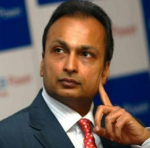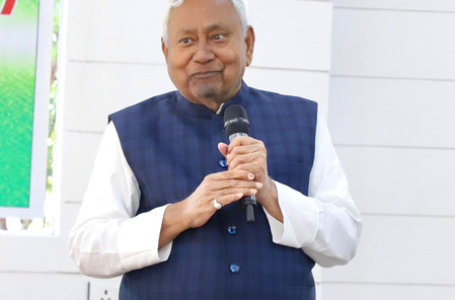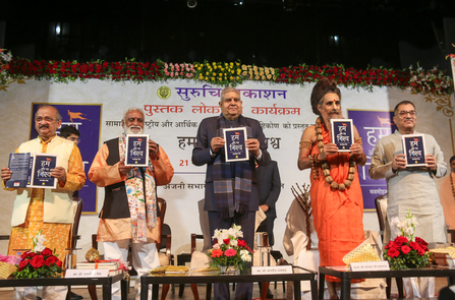April 10, 2020
New Delhi: If the India lockdown continues till mid-May along with moderate relaxation after the end of 21-day lockdown on April 14, it could put 32 million livelihoods at risk and swell non-performing loans (NPLs) by seven percentage points, resulting in the economy contracting sharply by around 20 per cent in the first quarter of fiscal year 2021, with –2 to –3 per cent growth for fiscal year 2021, a new report warned on Friday.
According to the report by leading management consulting firm McKinsey and Company, the cost of stabilising and protecting households, companies and lenders could exceed Rs 10 lakh crore, or more than 5 per cent of GDP in such a scenario.
The report, titled ‘Getting ahead of coronavirus: Saving lives and livelihoods in India,’ said that restarting supply chains and normalising production and consumption can take three–four months if the lockdown goes till mid-May as the virus ligers on.
If the lockdown continues for additional two–three weeks in Q2 and Q4 FY 2021 because of virus resurgence, it could mean an even deeper economic contraction of around 8 to 10 per cent for fiscal year 2021.
“This could occur if the virus flares up a few times over the rest of the year, necessitating more lockdowns, causing even greater reluctance among migrants to resume work, and ensuring a much slower rate of recovery,” the report suggested.
To understand probable economic outcomes and possible interventions related to COVID-19, McKinsey spoke with some 600 business leaders, economists, financial-market analysts and policy makers.
According to the findings, in case the lockdown period is extended till mid-May, the potential economic loss in India would vary by sector, with current-quarter output drops that are large in sectors such as aviation and lower in sectors such as IT-enabled services and pharmaceuticals.
“Current-quarter consumption could drop by more than 30 per cent in discretionary categories, such as clothing and furnishings, and by up to 10 per cent in areas such as food and utilities,” said the report.
Strained debt- service-coverage ratios would be anticipated in the travel, transport, and logistics, textiles, power and hotel and entertainment sectors.
There could be solvency risk within the Indian financial system, as almost 25 per cent of MSME and small- and medium-size-enterprise (SME) loans could slip into default, compared with 6 per cent in the corporate sector (although the rate could be much higher in aviation, textiles, power and construction) and 3 per cent in the retail segment (mainly in personal loans for self-employed workers and small businesses).
“Liquidity risk would also need urgent attention as payments begin freezing in the corporate and SME supply chains. Attention will need to be given to the liquidity needs of banks and nonbanks with stretched liquidity-coverage ratios to ensure depositor confidence,’ the report mentioned.
Given the magnitude of potential unemployment, business failure and financial-system risk, a comprehensive package of fiscal and monetary interventions may need to be planned.
“Consideration could be given to an income-support programme in which the government both pays for a share of the payroll for the 60 million informal contractual and permanent workers linked to companies and provides direct income support for the 135 million informal workers who are not on any form of company payroll,’ the report further suggested.
Since last week, the Health Ministry has observed a staggering rise daily in the number of confirmed coronavirus cases across the country — nearly 500-plus cases daily with a few exceptions where the number has gone below 400 cases — a pattern which indicates a worrying trend after solid implementation of the nationwide lockdown and sealing of hotspots.
On Friday, the number of confirmed cases has risen to 6,412, an addition of 669 cases in a day.
Punjab and Odisha have already extended lockdown till May 1 and April 30, respectively.
According to the report, countries that are experiencing COVID-19 have adopted different approaches to slow the spread of the virus.
Some have tested extensively, carried out contact tracing, limited travel and large gatherings, encouraged physical distancing, and quarantined citizens.
Others have implemented full lockdowns in cities with high infection rates and partial lockdowns in other regions, with strict protocols in place to prevent infections.
“The pace and scale of opening up from lockdown for India may depend on the availability of the crucial testing capabilities that will be required to get a better handle on the spread of the virus, granular data and technology to track and trace infections, and the build-up of healthcare facilities to treat patients (such as hospital beds by district),” said the report.
Since there is a very real possibility of the virus lingering on through the year, a micro-targeting approach could help decelerate its spread while keeping livelihoods going.
“It is imperative that society preserve both lives and livelihoods. To do so, India can consider a concerted set of fiscal, monetary, and structural measures and explore ways to return from the lockdown that reflect its situation and respect that most important of tenets: the sanctity of human life,” the report noted. IANS



















